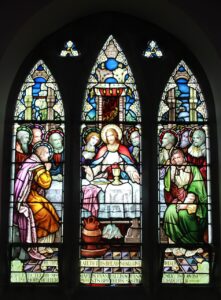Image by GiniGeo_Photography from Pixabay
Holy Week is a study in contrasts: triumph and defeat (the triumphal entry into Jerusalem, the apparent defeat on the cross, the triumphal rise from the grave), life and death (death on a cross bringing new life to the many who would believe), and love and hate (the love shown by Jesus to those who treated him with contempt). Such contrasts stretch our thinking and promote understanding: how much more meaningful is forgiveness when the price paid for it is high.
If we believe God is omniscient, we must acknowledge that He could have chosen any means He wanted to bring about our redemption, for example, a savior who did not die, a 10-step religious program, a long list of to-dos. By having the God-incarnate die in our place, however, He chose the costliest means possible, thereby demonstrating love for His creation and giving us even more reason to believe that He will never leave us.
Thus, we see in Holy Week echoes of Christmas, where God took on human flesh—Emmanuel, God is with us. And so now He stays with us, as Jesus dies for us and we rise with him.
